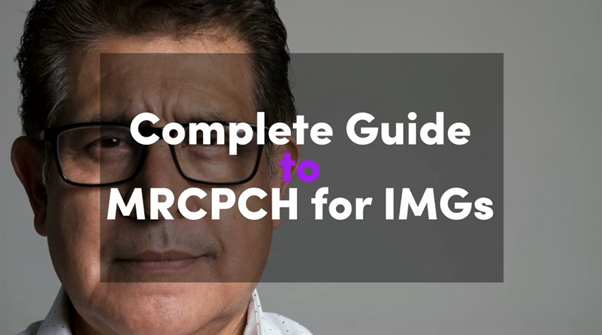FRCS Urology Exam
15 Jan, 20249 Minutes
The FRCS Urology exam is a mandatory requirement for obtaining a CCT in Urology. Administered by the Joint Committee on Intercollegiate Exams (JCEI), the exam is divided into two sections, and is usually taken in the final two years of training. This article overviews the two sections, what to do if you fail and the best texts and courses to boost your chances of success.
Exam Structure
Section 1
Section 1 of the FRCS Urology exam is a written test that assesses basic science and clinical knowledge. The exam consists of two papers, which are taken on the same day at your local Pearson Vue Centre. Paper one lasts for two hours and takes the form of single, best-answer (SBA) questions; paper two lasts for 2½ hours, consisting of extended matching items (EMI) questions. The exam is held twice a year, in January and July, and applications close three months before each exam date. The JCIE website contains useful resources, including the examination regulations and a detailed syllabus.
Section 2
Section 2 of the FRCS Urology exam is an oral test that assesses how well you can apply the knowledge you gained in Section 1. The exam consists of eight 20-minute vivas on the following topics:
- Urological oncology (kidney & bladder)
- Urological oncology (prostate, testis & penis)
- Paediatric urology
- Emergency urology
- Calculi & urinary tract infections
- Urological imaging & principles of urological technology
- Bladder dysfunction & gynaecological aspects of urology
- BPH & andrology
The exam is held twice a year, in May and November, and the location of the exam rotates through the UK and Ireland. The most important preparation for this exam is practice; take every opportunity to practice with anyone. Some people find it helpful to work as part of a study group. Video conferencing (e.g. with Microsoft Teams) allows you to practice vivas and discuss areas of uncertainty, if you do not live close to others sitting the exam.

What happens if I fail?
If you fail the exam, you can retake it in the next sitting. However, you must wait for at least six months before retaking the exam. You can apply for the exam through the JCIE website, for which you will require written references from your Training Programme Director and two other recent Consultant trainers.
Attempts allowed for each section
You can have four attempts at Section 1 within a two-year period, and four attempts at Section 2 with no re-entry.
Texts to use
Here are some more texts that you can use to prepare for the FRCS Urology exam:
- MCQs for the FRCS(Urol) and Postgraduate Urology Examinations This book contains over 1,000 multiple-choice questions that cover the entire syllabus of the FRCS Urology exam. The questions are organized by topic and difficulty level, and each question is accompanied by a detailed explanation of the answer.
- Urology: A Handbook for Medical Students This book is an excellent resource for medical students who are interested in urology. It covers the basic anatomy and physiology of the urinary tract, as well as common urological conditions and their management. The book is written in a clear and concise style, and it includes numerous illustrations and diagrams to aid understanding.
- Campbell-Walsh Urology: This is a comprehensive textbook that covers all aspects of urology. It is widely regarded as the gold standard in urology textbooks, and it is used by urologists all over the world. The book is organized by topic, and each chapter is written by an expert in the field. It includes numerous illustrations, diagrams, and photographs to aid understanding.
Courses to Attend
There are several courses that you can attend to prepare for the FRCS Urology exam. Here are some of the recommended courses:
- AGOUR course: This course is designed to help trainees prepare for the FRCS Urology exam. It covers all aspects of the exam, including Section 1 and Section 2. The course is delivered by experienced urologists, and it includes lectures, tutorials, and mock exams. You can find more information about the course on the AGOUR website.
- European Urology Residents’ Education Programme (EUREP): This is a comprehensive course that covers all aspects of urology. It is designed for urology residents who are preparing for the FRCS Urology exam. The course is delivered by experienced urologists, and it includes lectures, workshops, and hands-on training. You can find more information about the course on the EUREP website.
- BAPU course: This course is designed to help trainees prepare for the FRCS Urology exam. It covers all aspects of the exam, including Section 1 and Section 2. The course is delivered by experienced urologists, and it includes lectures, tutorials, and mock exams. You can find more information about the course on the BAPU website.
- BAUS FRCS revision course: This course is designed to help trainees prepare for the FRCS Urology exam. It covers all aspects of the exam, including Section 1 and Section 2. The course is delivered by experienced urologists, and it includes lectures, tutorials, and mock exams. You can find more information about the course by emailing BAUS for the latest dates.
BDI Resourcing – Your Partner for Urology Recruitment
If you’re reaching the end of your Urology training or preparing for the FRCS Urology exams then you might be thinking about your next job as a Consultant in the NHS. BDI Resourcing are experts in recruitment of Urology specialists with access to vacancies across the UK and unparalleled relocation support for candidates moving domestically or from overseas.
Reach out to BDI Resourcing and become one of the thousands of doctors who have trusted us with their recruitment and relocation.



